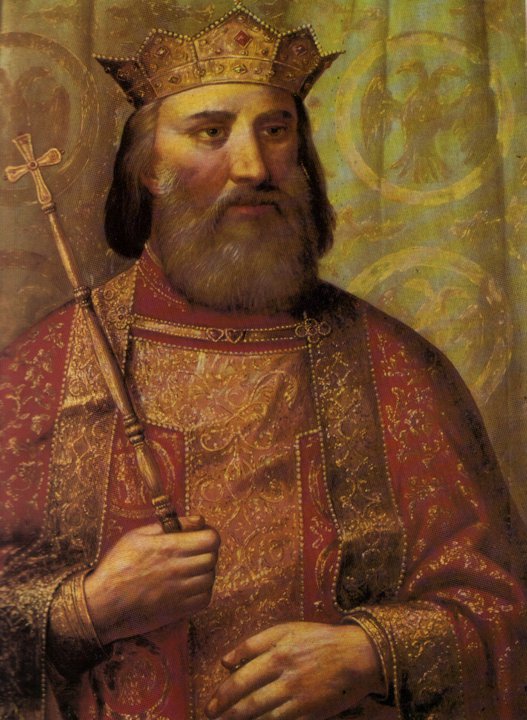
Sacred Time, Sacred Politics
This piece is adapted from the opening chapter of Orthodox Churches and Politics in Southeastern Europe: Nationalism, Conservatism, and Intolerance, published by Palgrave.
 On June 28, 1389, warriors under the command of Serbian princes managed to kill an Ottoman Sultan on the battlefield of Kosovo Polje (Field of Blackbirds). But the tide turned, the Serbs lost the battle, and their leader, “Tsar” Lazar, lost his life. Never mind that Serbs, Albanians, and others fought on both sides; Orthodox priests preserved Lazar’s body and nurtured stories of the event as a sacred Serbian victory in the face of overwhelming material odds. Centuries later, those embers of identity burst into a nationalist flame — all centered around the mythology of the battle.
On June 28, 1389, warriors under the command of Serbian princes managed to kill an Ottoman Sultan on the battlefield of Kosovo Polje (Field of Blackbirds). But the tide turned, the Serbs lost the battle, and their leader, “Tsar” Lazar, lost his life. Never mind that Serbs, Albanians, and others fought on both sides; Orthodox priests preserved Lazar’s body and nurtured stories of the event as a sacred Serbian victory in the face of overwhelming material odds. Centuries later, those embers of identity burst into a nationalist flame — all centered around the mythology of the battle.
On June 28, 1889, hundreds of thousands commemorated the 500th anniversary of the battle at Kosovo Polje in a collective move that highlighted their complaint that Kosovo was not yet part of the new Serbia. Franz Ferdinand, the heir to the throne of Austria-Hungary, made a fatal error when he visited Sarajevo on June 28, 1914, got himself assassinated, and kicked off World War I. A post-World War I constitution was promulgated on June 28, 1921 — a clear message to every non-Serb that the newly minted Kingdom of the Serbs, Croats, and Slovenes, later called “Yugoslavia,” would be dominated by a Serbian dynasty. On the 600th anniversary of the battle, Serbian strongman Slobodan Milosevic hosted perhaps 1 million people at the hallowed site. June 28 (Vidovdan — the feast day of St. Vitus) remains the Serb national day, their July 4.
It is important to remember that, for most Serbs, the connection between event and community did not emerge until well after the fighting in 1389, that it was formed and nurtured as a matter of faith as well as communal identity, and that the Serbs were not the only community to merge national movements with eternal faith. It was all fueled by something scholars call sacred time.
Sacred time is the direct perception of individual presence at, participation with, and experience of the seminal miracles, events, and state of mind produced by contact between the person in question, sacral personages of a faith, and God. The constructed, iconic past associated with sacred time in a nationalist framework is more than “theology” and anything but an anachronistic experience. Religious and nationalist entrepreneurs synchronize their visions of sacred times to harness the imaginations of the faithful and overcome local resistance to nationalism. It is, in short, an ecstatic experience.
For some, this heightened spiritual experience can be inspired by foundational oral narratives, sacred texts, or charismatic preachers, but it is just as likely to involve an affective sense of personal experience transcending anything associated with religious authority. Sacred time is not momentary, linear or perishable; it is temporal Platonic form. Transubstantiation of the blood and body of Christ during the Catholic mass or performance in passion plays, perceived connection by those Jews engaged in the study of the written Torah with the tradition of the Oral Torah – the presence on Mt. Sinai of the souls of all future commentators on the law as that law is being given by God to Moses – or a sense of behaving according to the guidance of the Prophet’s closest companions or carrying out acts of jihad lead people from secular into sacred time. The viewing of relics associated with any faith can have the same impact on the faithful.
Some erudite, sophisticated, or jaded figures of faith will recoil from those who embrace or seek out the rapture of sacred time. Other religious authorities and institutions — no matter how nationalistic or otherwise “of” this world they become, — will seek to catch this spiritual lightening-in-a-bottle and use the appeal of sacred time as a bedrock of communal legitimacy.
In this spirit, the carefully preserved remains of Tsar Lazar traveled around during the centuries, providing a material multiplier during key commemorations events. Lazar’s physical remains – protected by clerical overseers — were present at Kosovo Polje during the festivities of 1889 and 1989. There, and so imbued, the rituals of memory enabled celebrants to believe they were joining the protagonists of 1389 right then, right there. This was — and is — an ecstatic connection, a brand of faith and identity that aligns participants in a communal understanding that serves to define both the place that is “Serbia.”
The Serbian Orthodox Church has worked to cultivate the realization of sacred time during the post-Yugoslav era. It retains its claim to authority over Serbian communities and physical properties outside Serbia’s borders and in the diaspora beyond the territories of the old Yugoslav Federation. Serbian and Macedonian Orthodox clerics have risked arrest if they wander across the border between those two states wearing their vestments. Milo Djukanovic, who has dominated Montenegro since morphing from a Milosevic acolyte into a pro-Western strongman after 1996, recently bungled his management of the dispute between the Serbian Orthodox Church and a breakaway Montenegrin episcopacy and now faces the greatest political crisis of his career having run afoul of this narrative.
Those in charge of Orthodox Christian churches in the Balkans remain lashed to the national identities they have enabled. They have attempted to revive the sense that, while nationalism is modern and even progressive, it is also an essential partner in sacred time. Politicians continue to seek clerical support as keepers of the national flame, and the Byzantine-like icon remains a flourishing art form. And though there are limits to Orthodoxy’s influence – the Serbian Orthodox Church failed to prevent newly elected President Aleksandar Vučić from appointing Ana Brnabić, the country’s first openly lesbian Prime Minister — the church and its promulgation of the concepts of sacred time remain an overall successful project.
Indeed, the spiritual and emotional pull of sacred time will continue to serve both clerical and political authorities in the Balkans and elsewhere, especially if the largely material appeal of liberal institutionalism continues to decline. As national — and would-be national — identities are imagined, whatever is sacred about their constructed pasts will remain in the foreground of politics and security, and will continue to confound the dogma of Western nation-building and conflict management.
David Kanin is a retired CIA analyst and adjunct professor of international relations at Texas A&M. He’s also taught at the School of Advanced International Studies, Johns Hopkins University. He is the father of Preachy co-editor Mike Kanin.
